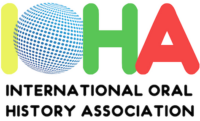Conference “Identity and Otherness in Periods of Crisis”
Komotini, Greece 18-20 May 2018
“Identity” and “Otherness” are crucial concepts in the social sciences and particularly in social and cultural anthropology. Research in these areas has revealed the diversity and mutability of social, gender, political, ethnic and other identities, as well as the interdependence of “identity” and “otherness”. What happens, however, in periods of crisis, with the acceleration of history and the deregulation of the “normality” of everyday life? How is this situation experienced by social actors, in particular by those who are classified as “others”? How do they describe their transition into “liminality” and how do they hope to get out of there? How is the “crisis” negotiated by people who used to feel themselves full members of their society and found themselves at the margins? Which are the strategies or practices they might deploy? Which are their attitudes towards the state and other institutions? How are notions such as “family”, “fatherland” or “self” renegotiated?
Oral history and – especially – life stories are privileged tools to explore these questions, as they offer opportunities to observe in detail ruptures, “biographical turns” and renegotiations that mark people’s lives in times of crisis, as well as the impact of such moments on the memories of our narrators and the way they tell their life story.
The Greek Oral History Association, in cooperation with the Department of History and Ethnology of the Democritus University of Thrace – in particular with the Laboratory of Folklore Studies and Social Anthropology and the Master program “Local History, interdisciplinary approaches” – organizes an academic conference in order to explore the above questions – today and in the past – by using oral sources and narratives. The conference will also explore methodological and ethical challenges posed by oral history interviews focusing on the relations between identity and otherness.
A non-exhaustive list of topics that might be addressed includes:
- Oral history and public history in times of crisis
- Economic crisis and survival strategies
- Ruptures and continuities in migrant and refugees’ narratives
- Formation and renegotiation of political identities
- Transformation of ethnic identities in times of crisis
- Renegotiation of gender and sexual identities
- Crisis and narration of the self
- Methodology: management of sensitive data
- Trauma, lived experience and biography
Proposals should include your name and affiliation, the title of your paper and an abstract of 200-250 words. Please clarify in which way your proposal is based on oral sources. The proposal should be sent by 10 February 2018 to vdalkavo@he.duth.gr and elkallim@uom.edu.gr. . You will be informed on the decisions reached by the Scientific Committee by 31 March 2018.
Organizing Committee
Vassilis Dalkavoukis, Department of History and Ethnology – member of the Greek Oral History Association Board
Ekaterini Markou, Department of History and Ethnology
Vassiliki Kravva, Department of History and Ethnology
Eleni Kallimopoulou, University of Macedonia, Vice–President of the Greek Oral History Association
Tzani Katsari, philologist – publisher
Scientific Committee
Riki Van Boeschoten, Emeritus Professor – University of Thessaly
Pavlos Pantazis, Associate Professor – Aristotle University of Thessaloniki
Vassilis Dalkavoukis, Associate Professor – Democritus University of Thrace
Elleni Kallimopoulou, Assistant Professor – University of Macedonia
Ekaterini Markou, Assistant Professor – Democritus University of Thrace
Vassiliki Kravva, Assistant Professor – Democritus University of Thrace
Maria Kavala, Ph.D. in History – Adjunct Lecturer – Aristotle University of Thessaloniki
Eleni Ioannidou, Historian – Historical Archive of Refugee Hellenism
Maria Karastergiou, Researcher in Social Anthropology– University of Thessaly

